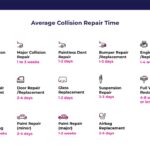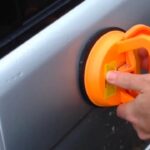Facing the possibility of car repossession can be stressful. If you’re struggling with auto loan payments, understanding the timeline for repossession is crucial. While there’s no universal grace period, knowing your rights and your lender’s typical procedures can help you navigate this challenging situation and potentially avoid losing your vehicle. This guide will clarify how long you might have before repossession and what steps you can take.
Understanding Car Repossession Timelines
It’s a common misconception that there’s a set number of missed payments before a lender can repossess your car. In reality, the timeline can vary significantly based on several factors. There isn’t a specific law that dictates “after three missed payments” your car will be repossessed. Instead, repossession is triggered by loan contract default, and the timing is influenced by state laws and, importantly, your specific lender’s policies. The moment you are considered in default according to your loan agreement, repossession can technically begin.
Key Factors Affecting Repossession Timing
Several elements determine how quickly a lender might move to repossess your vehicle:
Missed Payments and Grace Periods
The most direct trigger for repossession is missing car payments. While many loan agreements include a grace period, often around 10 days, this grace period merely delays late fees, not repossession. After this grace period, you are officially late, and the lender can initiate the repossession process according to your contract and state laws. The exact number of missed payments before repossession proceedings begin can differ, but it could happen after just one missed payment, depending on your loan terms and state regulations.
Communication with Your Lender
Lenders generally prefer to recover the money owed rather than repossess and resell a vehicle. Therefore, proactive communication is vital. If you anticipate difficulty making a payment, contact your lender immediately. Many lenders are willing to work with borrowers to create modified payment plans or arrangements, especially if you have a history of on-time payments. Open communication can buy you valuable time and potentially prevent repossession altogether. However, any agreement should be documented in writing to be legally binding.
Breach of Contract
Defaulting on your loan isn’t just about missed payments. A breach of contract, as outlined in your loan agreement, can occur in other ways, such as failing to maintain adequate car insurance. If you violate any terms of your loan agreement, your lender may have grounds for repossession, even if you are relatively current on payments.
Steps to Take If You’re Facing Repossession
If you are concerned about repossession, take these steps immediately:
Contact Your Lender Immediately
The most crucial step is to communicate with your lender as soon as you foresee or experience payment difficulties. Explain your situation honestly and inquire about options like payment deferral, loan modification, or a revised payment schedule. Document all communication, including dates, times, names of representatives, and details of any agreed arrangements.
Review Your Loan Agreement
Carefully read your loan contract to understand the specific terms related to default and repossession in your agreement. Pay attention to grace periods, late fee policies, and conditions that constitute a breach of contract. Understanding your contractual obligations is essential.
Remove Personal Belongings
If repossession seems imminent, remove all personal items from your vehicle. While lenders are not legally entitled to keep your personal property, retrieving them after repossession can be complicated and stressful. Take proactive steps to secure your belongings.
Conclusion
While there’s no hard and fast rule for exactly “how long do you have before they repo a car,” the key takeaway is that repossession can occur relatively quickly after you default on your loan agreement. Proactive communication with your lender, understanding your loan terms, and acting swiftly are your best defenses against vehicle repossession. Remember, preventing repossession is always easier than dealing with the aftermath. If you’re struggling, reach out to your lender and explore all available options to avoid losing your car.


